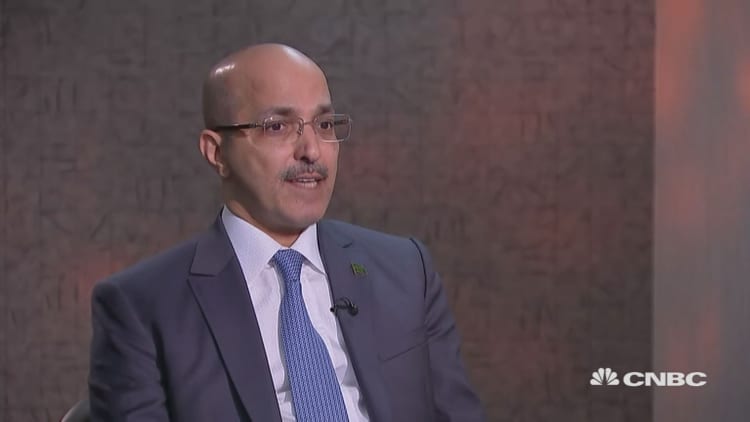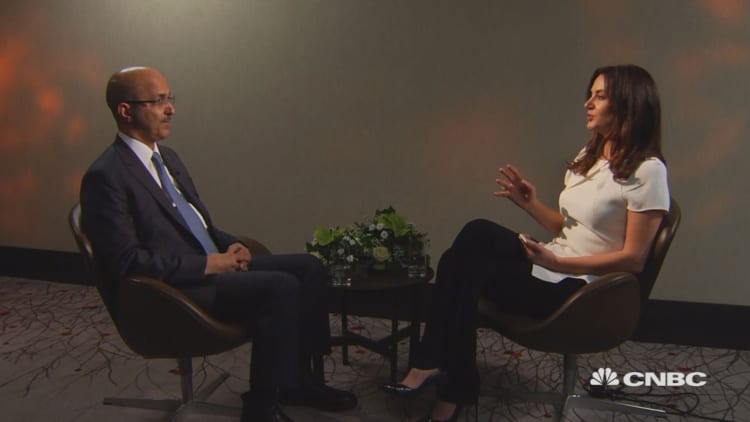
The finance minister of Saudi Arabia has sought to reassure investors that the kingdom is a secure place to invest following a crackdown on corruption in the country that saw individuals imprisoned and assets handed over to the government.
"We are creating a reform at all levels including the fact that we really need to make sure that investors feel it is a level playing field, that it is a level playing field that it is fair and very transparent," Mohammed Al-Jadaan told CNBC Wednesday.
"What is happening with the anti-corruption (drive) is just one part of that," he said.
Private and foreign investors could be forgiven for having concerns over investing in the country at a time of economic and societal change. Furthermore, a government crackdown on corruption late in 2017 that saw numerous Saudi business people, including notable royals, detained and imprisoned (infamously, in the Riyadh Ritz Carlton hotel) and assets handed over to the authorities in return for freedom could also spook investors.
Speaking to CNBC from the World Economic Forum (WEF) in Davos, Switzerland, Al-Jadaan sought to reassure investors, however.
"Saudi Arabia today is different, it's not Saudi Arabia five years ago. We are making sure that government processes and (the) licensing regime is being reformed to make investors feel more welcome and at home. We are also making sure investors are clear that the law is above everybody and we're going to apply the law in a clear and transparent way," he said.
Al-Jadaan's comments come as Saudi Arabia continues with the transformation of its economy away from oil. The changes are part of the kingdom's raft of economic and social reforms within its Vision 2030 program.

Vision 2030 is being overseen by Saudi Crown Prince Mohammed bin Salman and centers on three main themes to build a "a vibrant society, a thriving economy and an ambitious nation." A key part of the vision is to increase private investment and the growth of the private sector, which Saudi Arabia hopes will contribute 65 percent of gross domestic product (GDP) by 2030.
Al-Jadaan said the pace of reforms was good and growth in the private sector was robust. In December, the kingdom announced a 72 billion riyal ($19.2 billion) stimulus package to encourage growth in the private sector in 2018.
"This is financial, economic, social and legal reform that is touching all aspects of life in Saudi Arabia. We want it to be a model in the region," he said.
On Wednesday, Energy Minister Khalid al Falih told CNBC that the kingdom had been "transformed" on an economic level.
"Our message to investors is that the kingdom is transformed, we're serious about change, it's comprehensive change," he said.
Nonetheless, Saudi Arabia's economy is still largely predicated on oil and, with oil prices rising on the back of Saudi-led OPEC and non-OPEC producers curbing oil supply, the kingdom's finance minister said he welcomed higher prices but they would not affect spending limits.
"I think the oil price is going to help us, it's a welcome development and it is going to help with the deficit reduction but it's not going to change the plan," he said.
"We announced a midterm plan with (spending) ceilings this year through to 2023 and we're going to be disciplined. We're going to support spending on infrastructure and supporting private sector development and supporting citizens but within the ceilings that we've announced," he said.







